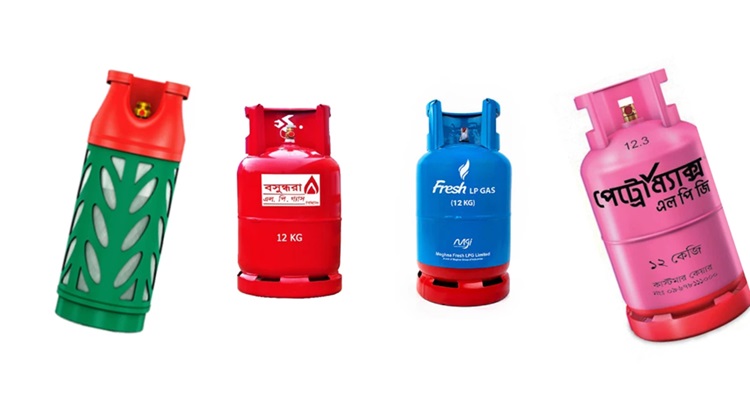Retailers flout LPG price cap, charge Tk 150–200 more despite BERC order


Even though the Bangladesh Energy Regulatory Commission (BERC) had set the price of a 12- kg LPG (liquefied petroleum gas) cylinder at Tk 1,364 for the month of July, many consumers in the capital were being forced to pay between Tk 1,500 and Tk 1,600 — well above the official rate.
The price discrepancy has sparked frustration among households and small businesses, who say they are being burdened with unjustified additional costs amid already mounting living expenses.
Talking to UNB, a resident of Uttara said, "I went to three different shops in my area, and no one was selling the cylinder for less than Tk 1,500. If the government fixes a price, why is it not being enforced? We, the common people, are suffering."
"We are the worst sufferers," said Kokhon, a restaurant owner, adding, "We use a lot of gas cylinders, but the prices are extremely high. Retailers always charge more than the price set by BERC — they don’t care about the official rate. It’s all controlled by a syndicate," he added.
Akhi Afrin, a housewife from Uttara’s Diabari, expressed similar frustration.
"This is not a luxury item. LPG is a basic necessity for cooking. If prices go up like this, how will we manage our household budget?" she said.
Surprisingly, many consumers remain unaware of the government-fixed LPG price.
When asked, several gave similar responses, UNB observed.
Questioned about the inflated rates, Raju Ahmed, Assistant Director (Tariff-2) at BERC, said the market is currently under surveillance by the Directorate of National Consumers' Right Protection, in coordination with the respective Deputy Commissioners' (DC) offices.
In response to why prices remain inflated despite ongoing monitoring, Raju Ahmed told UNB, “It should not be the case, but if such irregularities are occurring, I will bring the matter to the attention of higher authorities.”
He urged consumers to lodge formal complaints with the Directorate, attaching valid receipts as evidence, so that appropriate action can be taken.
Retailers, however, claim they are not deliberately ignoring the government-set rate. Instead, they point to problems in the supply chain and alleged price irregularities at the wholesale level.
"We're buying cylinders at higher rates from distributors — sometimes over Tk 1,450 per cylinder," said Jahidul Islam, an LPG retailer in Uttara.
"If we sell at BERC’s price, we’ll incur losses. We are being forced to charge higher just to stay in business," he said.
Another seller, requesting anonymity, said distributors themselves are not adhering to BERC prices.
"There is no proper monitoring, and small sellers like us are being blamed unfairly," he added.
He also mentioned that popular brands such as Beximco and Bashundhara are sold at higher rates due to their high demand.
Experts argue that the core issue lies in weak enforcement of BERC’s pricing directives.
"BERC may fix the prices, but without proper monitoring and a transparent distribution chain, consumers will never benefit," said an energy expert and consumer rights advocate.
"There needs to be strict action against those who are overcharging, including wholesalers," he said.
Consumers are now calling on the government to intervene and ensure LPG is sold at the regulated price. Many have urged BERC and the Ministry of Energy and Mineral Resources to conduct market inspections and hold both distributors and retailers accountable.
Until then, the gap between official pricing and real-world costs continues to weigh heavily on the average household.
